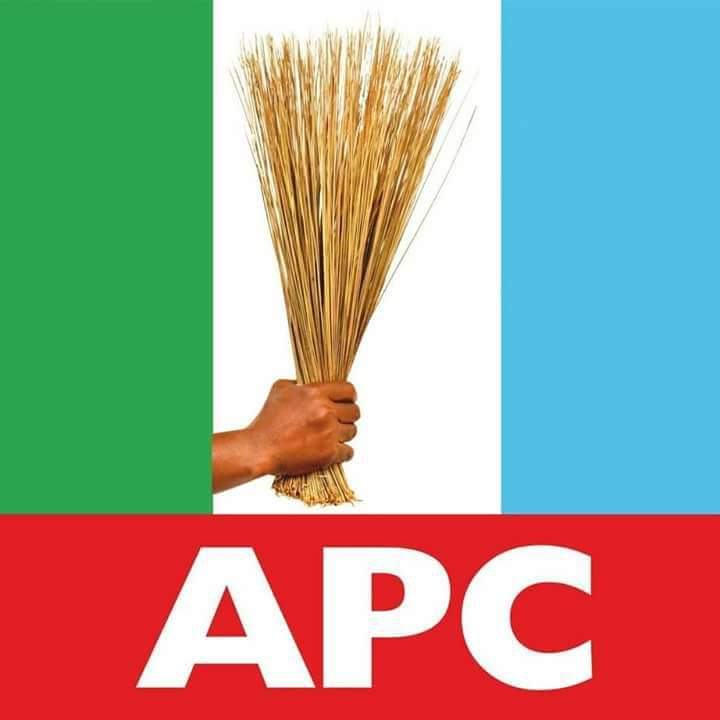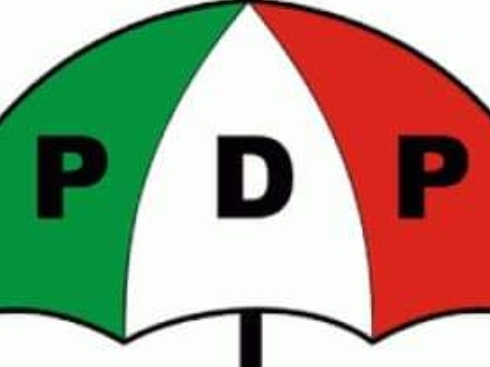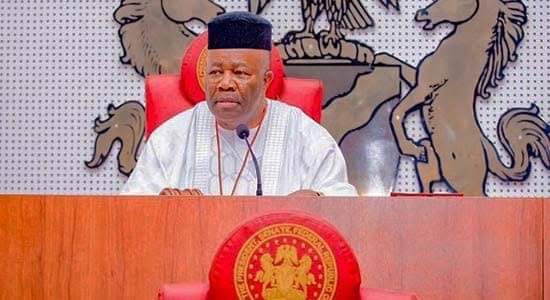EXCLUSIVE: Tinubu Is Responsible For Anti-igbo Bigotry Spreading Across Lagos
Bola Ahmed Tinubu has been exposed—as a bigot, that is. Eventually, and completely, it needs to be said. And it is all due to the hypocritical politics that he plays, particularly in Lagos State, where he holds sway as the alpha and omega of politics.
Significantly, his unrelenting and desperate quest to become the president of Nigeria led to his unravelling. Though he has succeeded in that regard since he is today the President and Commander-in-Chief of the Armed Forces of the Federal Republic of Nigeria, the success came at the great cost of shattering the façade of progressivism that has all along defined his politics.
Tinubu projects progressivism as his political worldview. However, in Lagos State, the “Igbo Must Go” hashtag has become a mantra on social media platforms for the Yoruba residents of Lagos and their supporters.
That is starkly anti-progressive by any stretch of the imagination and is happening in Tinubu’s Lagos. “Residents” is used advisedly in this context because not every Yoruba in Lagos is an indigene of Lagos State or a “Lagosian,” as the indigenes of the state delight in describing themselves.
And that is the irony.
Indigenous Lagosians and, in all fairness to them, the teeming Yoruba of liberal disposition have distanced themselves from and have been speaking against this divisive campaign, which tends to position Lagos as a xenophobic enclave for the Igbo. Such an open repudiation is quite reassuring. Chief Bode George, for instance, has said that the anti-Igbo campaign “is arrant nonsense.”
“Those proposing this nonsense have no bearing or family connection to Lagos. I am saying it as a Lagosian,” he added.
Yet, the campaign is real, and the bigoted campaigners are very vociferous. They have registered a notorious presence on all social media platforms, literally strutting and fanning the embers of hatred against the Igbo race.
In all that, silence had been the word from Tinubu, not to mention the Babajide Sanwo-Olu-led Lagos State Government, which he installed. It was only on August 4 that the president issued a feeble condemnation of the campaign as part of his equally half-hearted nationwide address following the “End Bad Governance in Nigeria” protests. Sanwo-Olu had reacted to the campaign in the same lax manner.
And to think that Tinubu himself ignited the “nonsense,” by the inordinate pursuit of his ambition. For the perceptive mind, the anti-Igbo sentiment got invigorated in Lagos during the 2015 electioneering, with that infamous outburst or threat by Oba Rilwan Akiolu of Lagos to have the Igbo population in Lagos drowned in the lagoon if they voted against Akinwunmi Ambode, who was Tinubu’s candidate for the governorship election of the state.
In no time, the sentiment became so widespread, and what obtains today is a sheer display of ethnophobia against the Igbo, comparable only to the xenophobic attitude of South Africans against Nigerians in that country. It was probably only during the civil war years that the Igbo had to put up with the kind of animosity currently exhibited towards them in Lagos. Daily, social media platforms brim with very terrible ethnic slurs by persons of Yoruba extraction and their supporters against the Igbo.
Such displays of ethnic prejudice can be overlooked if it is emanating from the ignorant or unenlightened class of people. But that is not the case. Educated and enlightened folks also amplify the anti-Igbo rhetoric. However, it must continuously be emphasised that Tinubu’s ambition (which he has achieved anyway), and nothing else, is at the root of it.
Events lend credence to this assertion. It bears repeating, and it is unarguable that Tinubu is the ultimate power in Lagos’s politics. He was a two-term governor for eight years and has maintained a vice-like grip on the state’s affairs. No one can attain any political height in Lagos State without absolute loyalty to him. To become governors, Babatunde Fashola, Ambode and the incumbent, Sanwo-Olu, danced to no other tune than Tinubu’s. Ambode, who dared to assert himself after assuming office, ultimately lost out big and is today a pariah in Lagos politics.
Because of Tinubu’s staying power, some have credited him with a mastery of political strategies. Yet, the fear of losing control over Lagos is real for him. And the Igbo population in Lagos has the potential to make it happen. The possibility of the clichéd parlance is that politics is a game of numbers that a Tinubu rival or an opposition party in Lagos State using the Igbo population can take advantage of. The consciousness of this possibility makes Tinubu and his cohorts who aspire to elective office very uncomfortable.
But the fear need not be, for an acclaimed strategist. All that the man who bears the vanity appellation “Jagaban” needs to do to sway the Igbo votes to his advantage is to woo the Igbo voters. But no, the threat seems to be the very strategy he has mastered and deploys it maximally.
Which progressive does that?
When the Oba of Lagos threatened the Igbo, Tinubu was not credited with any statement of disapproval of that reckless utterance. His silence was very readily interpreted as approval, and that enabled the activation of latent bigotry that a motley of Yoruba characters now profess and propagate. The 2023 electioneering for which Tinubu was the APC presidential candidate fed the anti-Igbo sentiment got more fillip. With the “master strategist” fighting the political battle of his life, the likes of Bayo Onanuga ran amok. Using majorly his X handle @aonanuga1956, as Tinubu’s spokesperson, Onanuga regularly churned out no-holds-barred hate-laden comments against the Igbo, bragging that “I don’t owe anyone any apology.” Not a few commentators had to be reminded of the genesis of the Rwanda genocide, whose imagery still scares humanity. It happened largely because of reckless utterances against an ethnic group, such as being spewed by him. Then, upon assuming office as president, Tinubu appointed Onanuga as the spokesperson for his government. That can only be a reward for a job well done.
Anti-Igbo expressions tend to convey the impression that Lagos Igbo residents characteristically interfere in Lagos politics beyond the limits allowed by and in a democracy. But that is not true. What is true is that the Igbo numerical strength in Lagos is second only to the Yoruba Indigenous population. That number can naturally determine the outcome of any election.
For context, Tinubu’s fear is reasonably informed by previous voting patterns, especially in 2015, that his party is not the choice of the Igbo in Lagos. He was trounced in the presidential election in Lagos State, and to date, the debate hasn’t abated that his party was heading for a greater trouncing in the governorship election but for some unspeakable manipulations and intrusions perpetrated on his behalf, including the deployment of the Oro traditional cult to prevent the Igbo from voting.
So, the resort to savage force by his supporters to suppress the Igbo votes was borne out of his desperation. And in the bid to stop the Igbo, all actions were considered fair: Street urchins and thugs, a cult group, as already alluded, were unleashed on the Igbo, with even some educated elite offering themselves to propagate the anti-Igbo rhetoric. In all this frenzy, they cared less about what would become of the Lagos image.
What mattered was Tinubu’s was for interest to be served. Lagos is the most cosmopolitan Nigerian city, featuring considerable attributes of civilisation if not modernity. That is the city where one man’s desperation to hold steadfastly on to power threatens to destroy its potential for exponential growth.
One otherwise insignificant social media account, @Lagospedia, on X took Onanuga’s hate propaganda some notches higher by its enthusiastic but ferocious propagation of Igbophobia. In its efforts, it spawned similar accounts like @Lagospidia, @Lagos_IBILE and @YorubaGuard. Though all the accounts have been reportedly deactivated on X, a sole agenda united them: A crusade against the Igbo population/interest in Lagos. On July 27, 2024, @Lagospedia posts assumed a dangerous dimension with its call for a xenophobic protest against the Igbo from August 20 to 30.
The handler specifically promoted the hashtag IgboMustGo, demanding the Igbo’s ejection from the southwest. As alluded, Sanwo-Olu only feebly condemned the crusade in a statement on August 1, where he urged Lagosians “to ignore the post and any post of that nature.” Sanwo-Olu surely does not need any reminder that it is in his Lagos that the Igbo population and their businesses have been attacked over and over without any consequence.
The agenda to pit the Yoruba population against the Igbo in Lagos and, by extension, the entire southwest is being pursued with palpable vigour. It bears repeating that it is done with President Bola Ahmed Tinubu’s tacit encouragement. Concerned authorities may turn a blind eye and deaf ear to what is happening in Lagos.
Still, it is worth mentioning that such expressions of anti-ethnic sentiments threaten the constitutional right of Nigerians to live anywhere in the country. Today, it is the Igbo. Tomorrow, as long as Tinubu continues to hold sway, it will surely be any other ethnic group in Lagos unless they don’t insist on exercising their franchise without let or hindrance.
But overall, events have exposed the Tinubu brand of politics for what it is and cast him properly. Neither he nor his protégés can, in all honesty, lay claim to progressivism. Interestingly, the deception about
Tinubu’s worldview of progressive politics had stuck in the public consciousness for far too long that, indeed, no doubt existed about his commitment to the principle. But deception, like all pseudofacts, has an expiry time. Bob Marley’s immortal words ring true here: “You can fool some people sometimes, but you can’t fool all the people all the time.”
The unravelling of Tinubu, though long in coming because of his adeptness at masterfully projecting a façade, eventually did come. Unless the meaning of progressive as used in democratic politics has been so elastically adjusted as to accommodate bigotry as a connotation, Bola Ahmed Tinubu, the politician who is today the President of Nigeria, should not have his name and his politics associated with that word or concept. At least, not anymore.
He has unravelled and should stop claiming progressive credentials. The unfortunate drift occasioned by his political predilection deserves nothing but blanket condemnation; otherwise, it would be institutionalised. It is a bad advertisement for the “unity in diversity” mantra that the country’s political leaders proclaim.
By Onyema Omenuwa













































